When it came to blaming the victims of the housing crisis, Southwark council’s housing office seemed to take inspiration from the Home Office and even pioneered/pre-empted a recent Home Office policy of telling homeless families to go on zoopla, writes Izzy Koksal.
Back in May, on the same day as local elections were taking place across the country, Milton’s family and other members from Housing Action Southwark and Lambeth (HASL) had gathered outside the Royal Courts of Justice. This was the second time a Southwark family living in some of the most overcrowded housing in the borough had ended up at the High Court to challenge the council’s decision that they were to blame for these housing conditions. In the group of supporters, four others had also received a similar letter to Milton cruelly declaring that their overcrowding was a ‘deliberate act’. The group held a home-made banner demanding ‘No More Overcrowding’ and did a few rounds of uplifting chanting and cheering before it was time to head inside.
Just over a month later in late June, in a quiet Southwark back street, a small crowd of six eagerly piled into a modern housing association house. After weeks of waiting, which included a few visits where the family had peeked through the windows trying to get a glimpse of the inside, Milton and his family were finally able to enter what would be their new permanent home. “The living room is the same size as our old flat,” Milton’s teenage daughter Rebecca remarked as she excitedly filmed the inside of the house on her mobile phone. Milton, who is naturally a very quiet person, seemed completely lost for words but his face was beaming the entire time. After the official tour with the housing officer was over, the group stood outside admiring the house. “We fought for this,” Milton’s wife said proudly.
For the second time in two years, a judge had sided with working class migrant families over Southwark council’s approach of blaming the victims of the housing crisis. After a battle lasting over four years Milton’s family had won in the High Court. Attending a packed HASL meeting shortly after the court victory, Milton thanked God and thanked the housing group. One HASL member reflected on this huge victory: “In HASL, we believe in ordinary people organising together to fight for justice and social change, so it was strange to find ourselves overjoyed and celebrating the words of a High Court judge who are not usually the biggest allies of homeless families.”
He added: “Getting to this stage had come from years of organising by families in severely overcrowded housing. It also shows how extreme Southwark’s council’s position was that the judiciary have had to repeatedly declare their actions irrational.”
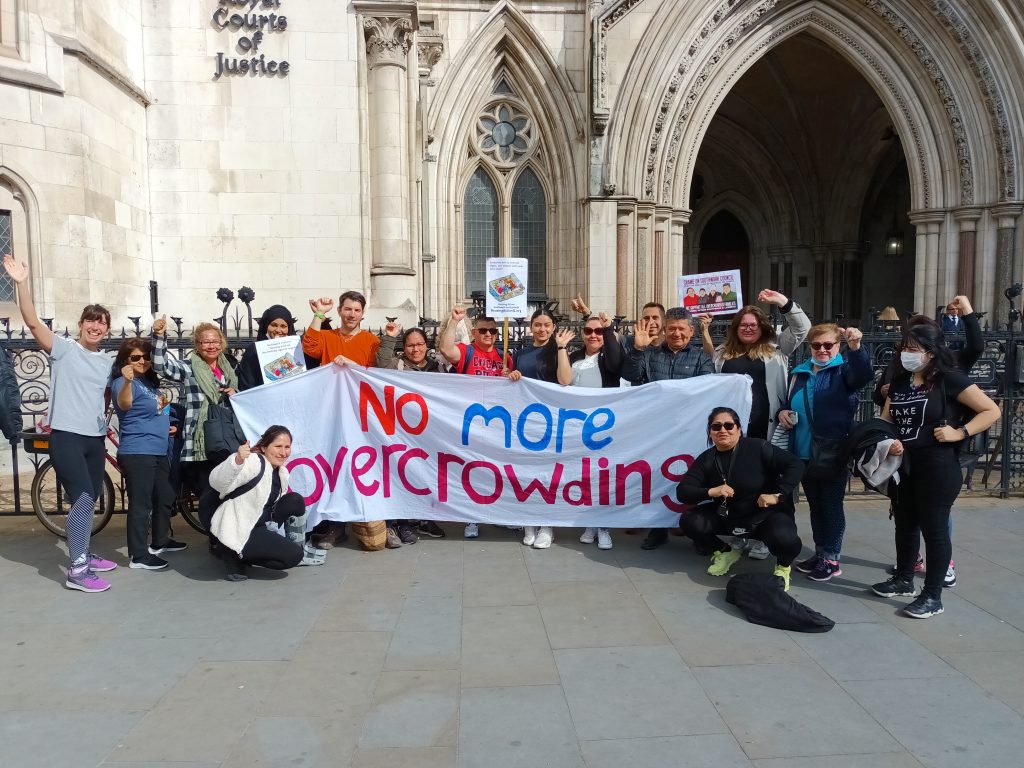 Whilst it is widely accepted that London’s immense housing crisis is driven by high private rents, a decade of welfare benefit cuts, and a desperate shortage of council homes, it’s hard to understand how Southwark council, a Labour-ran council, ever decided that it was their residents who were personally to blame and how they came to aggressively defend this stance through the courts.
Whilst it is widely accepted that London’s immense housing crisis is driven by high private rents, a decade of welfare benefit cuts, and a desperate shortage of council homes, it’s hard to understand how Southwark council, a Labour-ran council, ever decided that it was their residents who were personally to blame and how they came to aggressively defend this stance through the courts.
Although Milton’s fight had been the longest and one of the most difficult, his was not the only family who found themselves blamed and punished by Southwark council when they sought help for living in overcrowded housing. Southwark council’s ‘deliberate act’ policy has been targeting low-income families of colour and migrant families for over 6 years. Over the years, the council used a variety of tactics to intimidate and bully families telling them to live in other parts of the country, saying that they shouldn’t have come here, accusing them of fraud, and in one case asking if they would go ‘back’ to a country they had not lived in for almost two decades. In a number of cases, the council even threatened to prosecute vulnerable tenants for causing overcrowding instead of going after the profiteering slum landlords.
But with the support of HASL, dozens of families subjected to this appalling treatment have been fighting back and leading a community campaign since 2016 which has involved protests, hundreds of supporting emails, media coverage, an open letter signed by over 30 local community groups, a postcard campaign in the Covid lockdown, legal challenges and most importantly the solidarity of hundreds of families living in some of the worst housing conditions. This was never a campaign that relied solely on legal avenues, even though ultimately this was the only tactic that Southwark council would respond to. It was a campaign that was fuelled by HASL members collectively giving practical and moral support to each other every step of the way. The latest High Court ruling, along with the widespread public anger at the council’s behaviour and public support for HASL, leaves the council with little room to ever make such decisions again.
During the early years of the group, a meeting with ten attendees was considered busy, well-attended. In 2016 a Latin American mother and baby group had heard about HASL and arrived en masse. Suddenly the meeting had more than doubled in size and they welcomed their youngest member who was just four months old. The small meeting room was filled with buggies and babies. Speaking to the mums, the same housing issue came up again and again. Whole families were living in a single room in shared houses, studio flats, and the luckier ones had managed to rent one bedroom apartments. They had no other options. They explained that private landlords had refused to rent to them because they had children, or were claiming benefits.
These were the reasons they were being given to their faces, but it’s likely that private landlords also rejected them because they did not speak English and were recent migrant families. The government’s Right to Rent policy introduced to the whole of England in 2016 which outsourced immigration checks to landlords has no doubt helped further fuel racism and discrimination in the private rented sector. The Court of Appeal accepted that the policy meant that it was harder for people of colour and migrants to rent a property compared to a white British person.
Fearing being left street homeless, the families ended up in cramped rooms and flats in run-down and often dangerous housing from the only landlords who would rent to them. All of these families were so severely overcrowded that they satisfied the strict legal threshold of “statutory overcrowding”. This definition was invented in 1935 to help identify and prevent slum housing. The measure has never been updated and is therefore arguably based on outdated ideas of the space families need. New Labour did play with the idea of updating these rules when they were in power, but eventually backed down from the idea of providing adequate space to everyone. Essentially, if a family is statutorily overcrowded today then their housing is so poor that it would have been considered a slum in the 1930s.
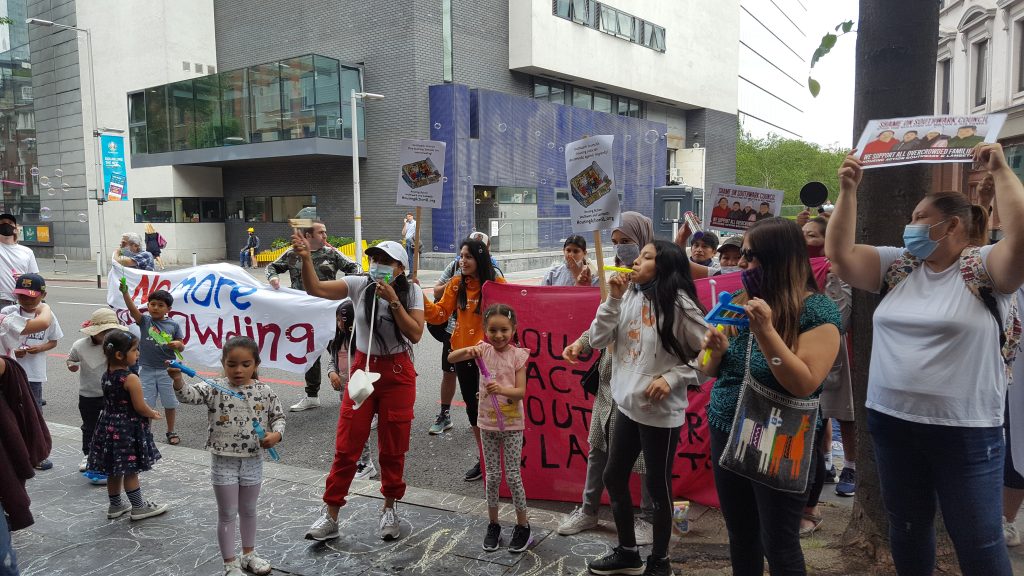 Maria’s story of how her, her husband, their three young children, and a tiny Chihuahua had ended up in a room above a shop on a busy road was similar to the others families. They had lived modest and comfortable lives in Spain before the financial crisis of 2008. The crisis meant that her husband Juan lost his job and she could not find any work either, trying to bring in money for the family, she would bake cakes to sell to people in the neighbourhood. Unable to find any work in Spain and unable to pay their rent, they came to London where Juan immediately found a work in construction. But finding decent housing was impossible faced with high private rents and the usual landlord refusals claiming they would not rent to people with children or who claim benefits. The room above a shop was the only option they had. The family of 5 and their tiny dog lived here for years before arriving at their first HASL meeting in 2016.
Maria’s story of how her, her husband, their three young children, and a tiny Chihuahua had ended up in a room above a shop on a busy road was similar to the others families. They had lived modest and comfortable lives in Spain before the financial crisis of 2008. The crisis meant that her husband Juan lost his job and she could not find any work either, trying to bring in money for the family, she would bake cakes to sell to people in the neighbourhood. Unable to find any work in Spain and unable to pay their rent, they came to London where Juan immediately found a work in construction. But finding decent housing was impossible faced with high private rents and the usual landlord refusals claiming they would not rent to people with children or who claim benefits. The room above a shop was the only option they had. The family of 5 and their tiny dog lived here for years before arriving at their first HASL meeting in 2016.
Facing the same problem, HASL supported the mothers to understand their rights and work on their cases together. Five families all in similar situations attended the group meetings regularly and became their own support group within HASL with Maria bringing sweet and savoury baking along to share. Southwark council’s housing allocations policy awarded band 1 – the top of the housing waiting list – to families living in statutory overcrowded housing who had not caused this overcrowded by a ‘deliberate act’. This meant that those living in the worst housing conditions would be able to move immediately into suitable social housing exactly as a needs-based policy should work. Confident that this policy was written precisely for the situations these HASL members were enduring, they each applied for band 1.
The first ‘deliberate act’ letters started to arrive. In the group meetings, members tried to translate what this meant, though everyone struggled to make sense of it. One letter seemed to be telling the mother that having her third child was the ‘deliberate act’ that had caused the severe overcrowding of their tiny room. The letters told them that they should have looked on Zoopla to find suitable housing – an approach that the Home Office recently adopted in August this year for Afghan families living in hotel rooms.
Whilst enduring appalling housing conditions and navigating unfamiliar council processes in a language that they did not understand, the group started the first campaigning activities to challenge the council on these cruel decisions. The families disrupted a council meeting to make clear the unfairness of being blamed for something out of their control. They occupied the town hall and even threatened legal action. However, the council resolutely stuck by their decisions blaming some of the most overcrowded residents in the borough for their housing conditions and refusing to give any help to the families. Eventually the families were able to obtain social housing through the waiting list even without the band 1 priority. The council’s actions nevertheless meant that the families were stuck in their cramped and dangerous housing for longer than they should have been, as well as facing hurt and marginalisation that came with being blamed for their intolerable housing conditions.
In Maria’s case the Local Government and Social Care Ombudsman (LGSCO) ruled that the council were wrong to not assist the family as soon as they became aware of the severe overcrowding, and the family were awarded £2700 for the distress caused. Unfortunately, the council did not take on the recommendations and continually failed to provide assistance to families in severely overcrowded housing, a theme that would be repeated time and again. On receiving the letter notifying her of the financial compensation, Maria immediately messaged the HASL phone worried that there had been a benefit overpayment and she was in debt. After so many official letters only bearing bad news, it seemed impossible that something had been decided in her favour.
After the original campaign started by the five families, HASL continued to regularly meet families living in severely overcrowded housing at their group meetings who the council were refusing to help. One HASL member remembers: “Around 2018 the council were systemically calculating statutory overcrowding incorrectly to deny them band 1 for urgent rehousing. Our members were getting letters telling them that they were not in fact statutory overcrowded so did not qualify. While the statutory overcrowding calculations can be a little complex, strangely the errors by housing officers never seemed to go in the families’ favour!” After legal action was threatened with the help of Public Interest Law Centre the council started calculating statutory overcrowding correctly,
But time and again the council relied on blaming families, using the ‘deliberate act’ policy to prevent them being urgently rehoused. The housing office’s use of this policy seemed to have no limits and even seemed to want to rival the Home Office in the cruelty they could cause. Central government’s hostile environment was being implemented by a local Labour council on their housing waiting list.
“I feel like they [the council] hate me. It made me want to give up,” Adama explained. She was living with her husband and their baby in a tiny bedsit. In what was a traumatic time for the family, he was unlawfully deported by the Home Office, and the High Court ordered the UK government to return him to the UK. When Adama applied to Southwark council for band 1 for statutory overcrowding, she found this traumatic incident being replayed. The housing officer decided that the overcrowding was ‘deliberate’ after she had allowed her husband to return to their family home after the unlawful deportation.
A HASL member who was supporting Adama at the time remembers: “It felt like the housing officers were re-opening the Home Office’s investigation and casting doubt that her husband had the right to be here. It was terrifying and distressing for Adama after what the family had already been through. The housing office were trying to be even tougher than the Home Office and tougher than the Home Office acting unlawfully.”
Adama had a lawyer working on her case and she was eventually awarded band 1 and placed at the top of the housing waiting list, but in what could be seen as a spiteful move, the council refused to withdraw the ‘deliberate act’ decision, unable to find themselves in the wrong and intent on having the final word.
As well as supporting families with their individual cases, HASL constantly highlighted their concerns to the Council leader, councillors and senior housing staff about the council’s use of ‘deliberate act’ decisions on families of colour and migrant families and the treatment these families were facing. They hoped that Adama’s case would finally cause the council to re-think their approach and look at exactly what was going on in the housing office. But the lack of response and sometimes a combative response from those in senior positions only seemed to embolden staff and the culture of blame and refusal. In response to an open letter by HASL, PILC and 30 community groups in September 2020 about the use of the ‘deliberate act’ clause, Southwark council’s lawyer responded stating that living in overcrowded housing is a ‘choice’, that they should move to more ‘affordable’ areas, and suggested that they were queue jumping.
In May last year, a family of five, two parents and three sons aged 17, 15, and nine who had No Recourse to Public Funds, finally had their NRPF condition removed. The five Home Office letters that confirmed their Indefinite Leave to Remain were life changing, as they were suddenly able to access benefits and housing assistance. ‘It’s the happiest day of my life’ an elated Patricia called to tell HASL organisers. The family of five had been living in a room above a take away shop on a busy Southwark road where they shared a bathroom and kitchen with other tenants. The family had lived in Southwark for almost 20 years, and they had lived in this room for the last 10 years. The NRPF condition meant that they only had their wages to live off. 10 years ago when they were facing imminent homelessness, they had been ‘lucky’ to find this room Patricia explained to a housing officer in an interview.
The housing officer listened to Patricia describing the difficulties her family had faced for almost two decades; they had never had their own home here in London, before this room, they had lived in a warehouse that had been shut down by the council because it was dangerous. The housing officer asked bluntly: “Have you thought about going back to Peru?”, Shortly after the interview, a ‘deliberate act’ decision letter arrived.
This interview happened after another HASL family had won a significant legal victory in the Court of Appeal against Southwark council’s ‘deliberate act’ decision. As with the other families living in severely overcrowded housing, Favio and his family had no other option when they moved into a one bedroom flat in Peckham. Southwark council argued that before renting a property, the family should have realised that they would have become statutorily overcrowded at some point in the distant future. But the Court of Appeal sided with the family and recognised the impossible situation they faced: “One might ask, what else was he to do?”. The Court of Appeal found the council had behaved unlawfully and ordered the council to place the family at the top of the housing waiting list. But this massive defeat did not give Southwark Council cause to stop and reflect. In fact, the Court of Appeal’s judge’s question, “what else was he to do?” seemed to encourage housing officers to come up with even more outlandish suggestions.
In Milton’s case, the council went so far as to suggest that he should have left his family over 5,000 miles away. By allowing them to re-unite with him here in London, without submitting ‘any evidence to suggest why it was necessary rather than desirable to have your family join you in the UK’ the council said their severe overcrowding was a ‘deliberate act’. Despite the ample evidence submitted by the family about their lives, schools, work, church, and volunteering in the borough, the council continued to hurtfully suggest ‘there is no special requirement for you to reside in the borough’.
The family of four lived in this tiny studio flat for over two years before they found HASL in 2018. As with the other affected families, this was the only place they could find and even then, they only secured it with the help of their local pastor who helped to negotiate with the landlord. The helpful pastor also directed the family to HASL who helped the family to join the social housing waiting list. No one could have begun to imagine how this simple request, as hundreds, if not thousands of other local residents make each year, could trigger such a determined four year long council-directed bullying campaign against the family.
After what has now become a familiar year long wait for the application to even be processed, the council made their first decision that the family had ‘deliberately worsened their circumstances’ and placed them at the very bottom of the housing waiting list. With the help of lawyers from Public Interest Law Centre and a mass postcard campaign during the Covid-19 pandemic, this was overturned and the family were moved up a band on the waiting list. Though they still had no chance of obtaining social housing.
HASL and PILC had also supported a number of other families to successfully overturn ‘deliberately worsening circumstances’ decisions in 2020 and have not seen the council use this since. With every small victory, the council would look for another way to punish the family. In a later decision letter, the council threatened to use their powers to criminally prosecute the family for their overcrowding. This was the first time HASL had seen a local council threaten to prosecute a family for overcrowded housing.
Favio’s legal victory in the Court of Appeal in 2020 helped to open up further legal challenges to the council’s use of ‘deliberate act’ against families in severely overcrowded housing. Somehow Milton’s family had been persevering for all these years against the countless decisions blaming the family for their own overcrowded housing, and was able to launch another legal challenge. Over these years, another tactic of the council had been to endlessly demand documents and evidence from the family in response to ridiculous accusations. Seeming perplexed at the latest request from the council, Milton’s teenage daughter remarked ‘it’s like they want to write a book about our lives’.
Talking about the treatment they endured three years in, with one year still ahead of them, Rebecca explained: ‘I feel really bad because it is like the treatment of us is racist, they are being really strict to us, they don’t care about the family. It feels like we’re treated like we have done a crime because of the way they have treated our case. They are asking for so many documents about our life.’
The delays and fear tactics of the council resulted in HASL descending on Southwark Town Hall for a noise protest to demand an end to this bullying and calling for the council to award Band 1 to Milton and other overcrowded members. This was just one of the many tactics that hundreds of HASL members and supporters took in solidarity with Milton and his family over the years. But despite the huge public support for the family and against the council’s treatment, the council remained resolute. One HASL member explained: ‘This went all the way to the top. We made sure that senior staff and councillors were aware of the family’s case because of the huge injustices they were suffering. But instead of resolving the situation, senior people clearly supported what was going on and so the cruel and harmful treatment of the family continued, while council resources including significant amounts on legal fees, went on making a poor migrant family’s life a misery.’
These ‘deliberate act’ decisions went beyond the significant impact on the individual families affected by them. Their friends and communities who heard about stories from the housing office threatening fraud investigations and criminal prosecutions saw the housing office as a place to be avoided. Media coverage of Milton’s family’s case led to a deluge of racist comments on Facebook mostly parroting the council’s attack line about how the family should not have come here if they couldn’t afford high London rents. HASL wrote to senior staff and councillors to raise how their decisions were fuelling racist and toxic rhetoric but the short response from the manager was that the family should report this to the police. As with the housing crisis, when it comes to dealing with racism, the council clearly believe that the victims should have the onus put on them.
As the final court hearing approached, the council clearly felt the pressure to look like they were working on the family’s case. A private sector enforcement officer visited the flat to do an inspection, four years after the council had first been aware of the severe level of overcrowding. The notice served by the enforcement officer finally acknowledged the harm of severe overcrowding: ‘Lack of space have been linked to a number of health outcomes, including psychological distress and mental disorders especially those associated with lack of privacy and childhood development.’
At the court hearing on 5th May, the council’s arguments included the idea that Milton’s daughter, a full-time student, should get three jobs alongside her studies to pay for suitable housing for the family. Thankfully, the judge was not swayed by this and found the council’s decision to be unlawful.
These kinds of legal cases are hard to win, as councils are usually given considerable freedom by the courts to manage their housing waiting lists in the way that they choose. The month after this victory, research showed that the success of these types of cases has dramatically dropped, due to harsh government rhetoric having a ‘chilling effect’ on judges.
And in politician tweets which age badly, here is the then leader of Southwark Council in 2017 mocking the start of HASL’s overcrowding campaign, saying that if the council is wrong then the courts can intervene, which they eventually did, twice. But the years of suffering experienced since that tweet are because justice through the courts is not always swift nor fair. Had the head of the council listened to local homeless and overcrowded people in 2016, rather than treating their campaign with this contempt, then families like Milton’s would not have had to endure many more years in slum housing.
Instead of listening all those years ago, why did a Labour council decide to spend years waging a cruel, and costly, campaign against some of their most vulnerable and overcrowded residents? Numerous councillors and senior housing office staff allowed this to continue year after year. Why did no one step in and put a stop to it?
HASL’s campaigning made sure that they could not claim not to be aware of the issues. So the only explanation is that they supported this policy which saw families trapped for years in dangerously overcrowded housing, asked if they would ‘go back’ to another continent, threatened with prosecution, and forced to pursue lengthy legal battles.
Without this campaign, the council would have continued to successfully barr the poorest migrant families from social housing, leaving them in slum housing indefinitely. This is an extreme example of how local councils have been gatekeeping various housing services for years, always targeting the most vulnerable. By challenging council gatekeeping and defending homeless people’s and tenants’ rights, this puts pressure on them to actually solve the housing crisis. We can only imagine the outcome if Southwark council had targeted Central government with the same energy and determination in which it took on their most vulnerable residents.
HASL’s campaign, alongside the work and collaboration of determined radical lawyers, meant that dozens of HASL members in some of the most severely overcrowded slum housing in the borough were able to move to secure, spacious, social housing, despite the shocking lengths that the council went to to put them at the bottom of the housing waiting list. Even after moving into their new homes, these families continued campaigning and supporting others facing the same problems. Each victory built on each other, and finally helped to bring down the ‘deliberate act’ policy which has been cruelly targeted at working class migrant families and families of colour.
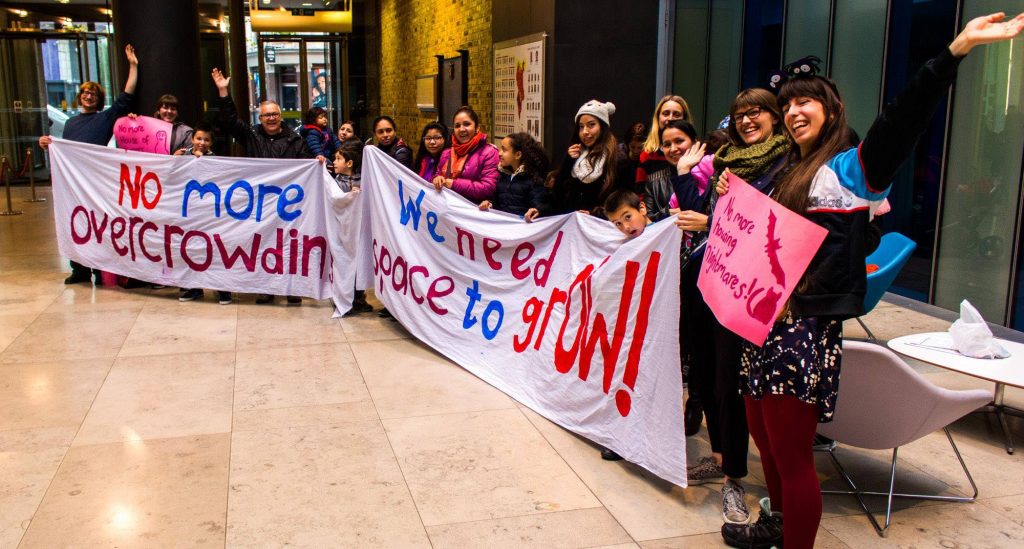


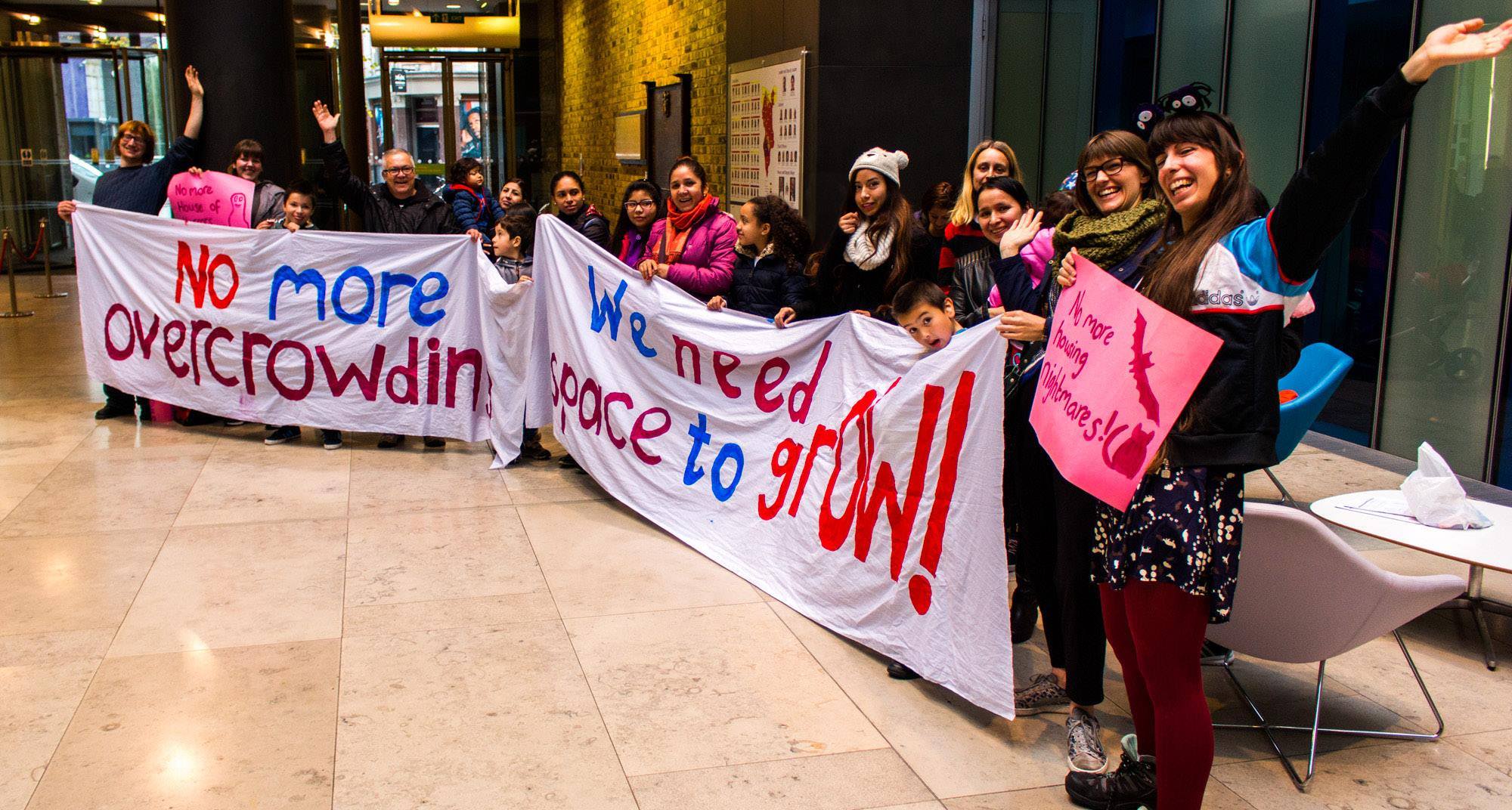



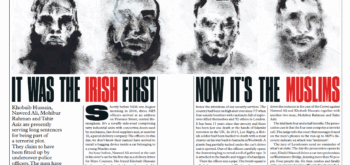
A detailed critique of the Court of Appeal judgment in the case of Oliver Campbell